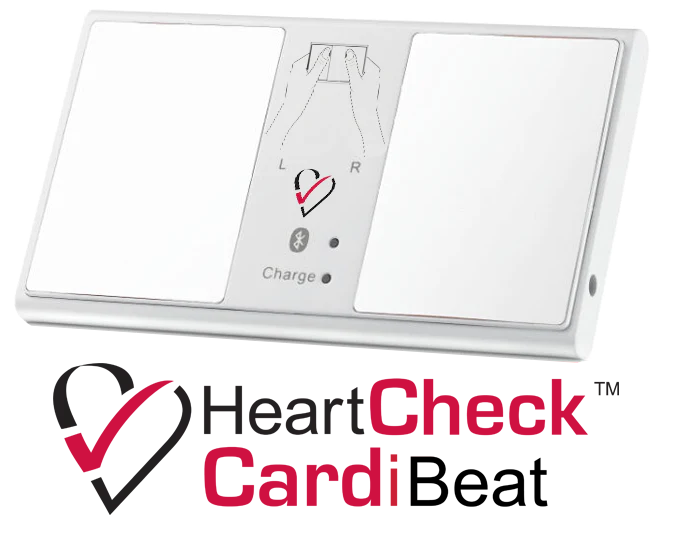ECG monitoring to be performed by Sunnybrook Hospital (Toronto) through in-home SMART Monitoring services.
Toronto, Canada – CardioComm Solutions, Inc. (TSX-V:EKG) (“CardioComm Solutions” or the “Company”), a global medical provider of electrocardiogram (“ECG”) acquisition and management software solutions, announced it is working with clinicians at Sunnybrook Hospital in Toronto to use the HeartCheckTM PEN handheld ECG device and SMART Monitoring service to monitor patients for ECG changes that may result in sudden cardiac death. The HeartCheckTM PEN ECG was also cited in the lead article of the July 2013 North American circular “Congenital Cardiology Today”.
“We are pleased to have been asked to work with clinicians in the Arrhythmia Program of The Schulich Heart Centre at Sunnybrook Hospital, one of Canada’s leading cardiac centres,” said Etienne Grima, Chief Executive Officer of CardioComm Solutions. “The goal of the clinical evaluation is to verify that HeartCheckTM based, single lead ECG use can enable longer and more frequent safety monitoring of patients on anti-arrhythmic drugs than is currently available. There is also the potential that increased vigilance for in-home arrhythmia surveillance through use of the HeartCheckTM and SMART Monitoring technologies beyond the current three day in-hospital monitoring period will lead to significant health care savings and improved patient outcomes. The Canadian Institute for Health Information reported that the average cost for a one day observational stay for a middle aged adult in an Ontario Hospital (2010-2011) was $1,888 (general observation) to $5,183 (cardiac disorder observation). A one day savings could allow several people to be monitored beyond discharge from hospital.”
“Class III anti-arrhythmic drugs are highly effective in prevention of arrhythmias but their use in patients is not without risk as they may cause polymorphic ventricular tachycardia that could result in sudden cardiac death. This potentially lethal arrhythmia is characteristically preceded by significant QT interval prolongation, a phenomena that may occur in up to 20% of treated patients. In recognition of this risk, upon the start of anti-arrhythmic drug treatment, there is a mandatory three day, in-hospital ECG monitoring period,” said Dr Eugene Crystal, Associate Scientist, Sunnybrook Research Institute, University of Toronto and Director, Arrhythmia Services, Schulich Heart Centre, Sunnybrook Health Sciences Centre.
“The majority of sudden cardiac death occurs in patients in whom cardiac arrest is the first and only evidence of disease or those in whom risk previously identified but classified as low risk. The surface ECG represents a particularly useful tool as QRS duration and QT prolongation can easily be obtained and their normal ranges are well established thereby providing a convenient way to follow and risk stratify individuals. While the precision of QT measurement is better with a 12 lead ECG, the HeartCheckTM PEN single lead measurement may be more optimal for monitoring of prolongation of QT given its simplicity of use and cost effectiveness. The benefit of such a device is that it always records in the same ECG lead configuration and allows each patient to act as his/her own control for serial measures,” said Dr. David Newman, Associate Professor, Faculty of Medicine, University of Toronto and Electrophysiologist, Arrhythmia Services, Schulich Heart Centre, Sunnybrook Health Sciences Centre and member of the Board of Directors of the Company.
The Sunnybrook ECG monitoring project will involve a group of patients starting class III anti-arrhythmic drugs, including Sotalol and Dofetilide, in accordance to physician’s common practice. ECG recordings will be reviewed for the presence of QT prolongation and ventricular arrhythmias using 12 Lead ECG recordings for in-hospital days. Single-lead ECGs will be measured twice daily in hospital and for 14 days post-discharge using the HeartCheckTM PEN ECG, three hours after each medication dose until the fourteenth day. ECGs will be transmitted by the patients from home using GEMS Home and will be interpreted by Sunnybrook Hospital through the SMART Monitoring service. The results will be used to validate the HeartCheckTM PEN ECG readings versus 12 lead readings. Additionally, the study will confirm whether in-home ECG monitoring can provide appropriate long-term surveillance for detection of arrhythmias and QT prolongation as a preventative measure for drug induced sudden cardiac death.
The need for increased home monitoring was highlighted in this month’s lead article in Congenital Cardiology Today entitled, “Home Monitoring to Identify Arrhythmia Concerns: The Promise of Personal ECG Screening”. The article identifies the International Registry for Drug-induced Arrhythmias website, maintained by the Georgetown University (www.qtdrugs.org/medical-pros/drug-lists/drug-lists.htm), which lists medications such as Ritalin derivatives for paediatric ADHD, high dose Citalopram for depression and the use of the popular antibiotic Azithromycin , that may affect QT interval and/or induce ventricular arrhythmias. The site states QT prolongation to be predictive of sudden death and has therefore advocated QT reading as an important screening measure in adults and children. The article states the need for dynamic and individualized monitoring of QT and cites the CardioComm Solutions’ HeartCheckTM PEN ECG device and software as a device that could meet that need.
“We believe that the results from the Sunnybrook project, as well as results from additional independent research initiatives underway, will demonstrate the utility of the HeartCheckTM PEN and SMART Monitoring in addressing the unmet needs for personalized ECG monitoring in prevention of sudden cardiac death and the treatment of arrhythmia based cardiac disease,” summarized Etienne Grima.

